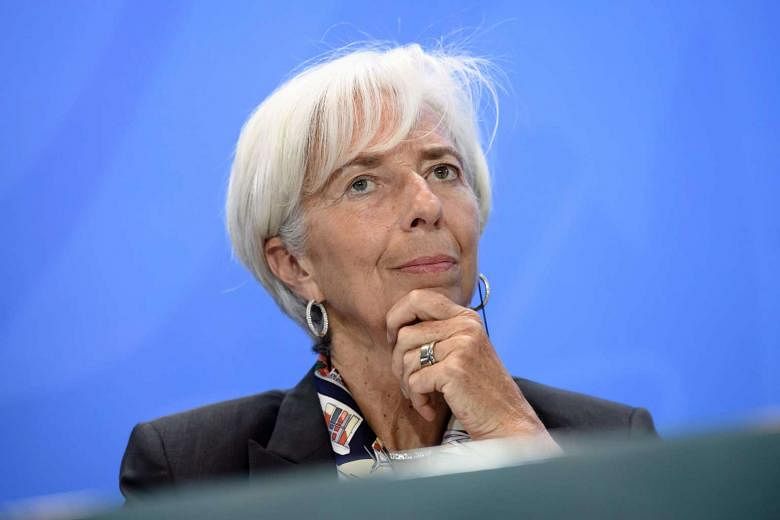BRUSSELS (Reuters) - Global economic recovery is gaining momentum but could be cut off by a "sword of protectionism" now threatening global trade, International Monetary Fund Managing Director Christine Lagarde said on Wednesday (April 12).
Lagarde, speaking ahead of next week's IMF and World Bank spring meetings in Washington, argued for countries to strengthen the post-war open trade architecture by cooperating multilaterally to solve trade issues such as reducing excessive external imbalances.
Her prepared remarks did not specifically mention US President Donald Trump's "America First" trade agenda that aims to restrict imports into the United States.
But she said restricting trade would be a "self-inflicted wound" that would disrupt supply chains and raise prices for components and consumer goods, hitting the poor hardest.
For the first time in years, she said the global economy"has a spring in its step" as the Fund prepares to release new growth estimates on April 18.
"The good news is that, after six years of disappointing growth, the world economy is gaining momentum as a cyclical recovery holds out the promise of more jobs, higher incomes and greater prosperity going forward."
The prospects are better for advanced economies, where manufacturing activity is stronger, as well as for emerging and developing economies, which will contribute more than three quarters of global GDP growth this year, she said.
Higher oil and commodity prices have aided many commodity exporters, but their revenues will stay well below the boom years, she added.
"At the same time, there are clear downside risks: political uncertainty, including in Europe, the sword of protectionism hanging over global trade, and tighter global financial conditions that could trigger disruptive capital outflows from emerging and developing economies," Lagarde said.
She reiterated her call for countries to use fiscal and monetary policy to boost demand and structural reforms to make economies more efficient.
She also voiced concern about lagging productivity growth and called for more investments in research. She said trade promotes efficiency and innovation, citing forthcoming IMF research that estimates that China's integration into the global trading system accounted for as much as 10 per cent of advanced economies' overall productivity gains between the mid-1990s and the mid-2000s.
Governments also need to find better ways to aid workers who are displaced by technology and trade flows, Lagarde said.
"There is no magic formula. But we do know that greater emphasis on retraining and vocational training, job search assistance, and relocation support can help those affected by labor market dislocations," Lagarde said.

